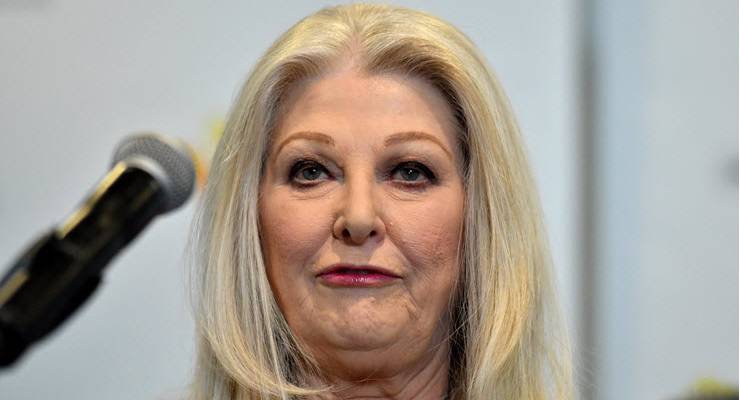
Scott Morrison might be too busy to set up a federal integrity commission, but his government has been going hammer and tongs changing laws which affect business accountability under the cover of COVID-19.
Insolvent trading laws were relaxed, it became easier to dilute retail shareholders in capital raisings, class actions were banned and now the government is embarking on a rushed consultation process to allow companies to ditch the physical annual general meeting (AGM), moving wholly online.
Stakeholders were given just 11 days up until October 30 to make a submission on the draft legislation which proposes to make permanent the earlier temporary relief, introduced in May, from holding physical AGMs.
This is a bad move. The physical AGM is the one day of the year where shareholders get to eye-ball directors. The backlash has been considerable, with the world’s biggest proxy advisory firm, ISS, slamming the proposal as one that would “stifle questioning and accountability of boards”.
Peter Morgan, the former head of Perpetual Investments, is one of the few Australian fund managers who ever bothered to turn up and ask questions at physical AGMs. He tweeted yesterday that he was “totally against any attempt to get rid of a physical AGM” and that it was “a disgrace that fund managers managing other people’s money don’t attend AGMs and other entities like super funds don’t have them”.
By all means have a virtual component to the meeting, as many companies already do. But if you don’t bring the shareholders, directors and executives into the one room you will lose the accountability that comes from sustained questioning.
The Crown Resorts AGM last Thursday was a good example of what can happen if you go fully virtual while also removing the ability for shareholders to speak at AGMs.
The Australian’s Damon Kitney summed up the Crown AGM atmospherics as follows in Friday’s paper:
The first virtual annual meeting in the company’s history, supposed to be the most anticipated ever after the devastating findings of the Bergin inquiry, turned into an affair completely devoid of emotion.
Unlike their worst moments in the Patricia Bergin’s witness box over the past four weeks, Crown’s directors — led by chair Helen Coonan — were completely back in control.
The voice of shareholder activist Stephen Mayne was nowhere to be heard. Instead his usual series of questions were submitted in writing and read to Coonan by company secretary Mary Manos.
A small number of companies such as Rio Tinto and Macquarie Group have set up teleconference meetings to allow shareholders to ask unscripted oral questions during their AGMs, but the vast majority are limiting questions to those submitted in writing either before or during the meeting, which is highly restrictive.
For instance, the Commonwealth Bank deliberately ignored a range of questions submitted by some of its critics, curtailing what is normally a four hour-plus meeting to only two hours this year.
In the case of Crown, it didn’t put a cap on written questions, so the Q&A session lasted for about two hours as 10 different shareholders asked around 40 uncensored questions and we actually got to cover a lot of useful territory. But it would have been a lot better if there was both oral and written questions through the online platform. That is what should be written into the legislation if the physical AGM is going to be banned.
Like with any legislation, you have to take account of loopholes that will be exploited by rogues.
For instance, mandatory physical AGMs aren’t necessarily much good if there’s no webcast. Gerry Harvey has refused to ever do a webcast of his Harvey Norman AGM, and he intimidates and verbally abuses critics who turn up in person.
Rupert Murdoch is another rogue who abuses the physical AGM process by limiting shareholder attendance numbers to fewer than 10 through an elaborate registration in a Los Angeles car park and then a trip in a company bus to the Fox Studios lot. He then imposes a strict two-question limit over two minutes for shareholders courtesy of the most restrictive meeting procedures of any ASX-listed company, after which his security detail quickly removes the microphones.
Mandatory online AGMs might be a step forward in terms of holding Murdoch to account, provided the ability to ask questions is freed up. The proxy statement for the first ever wholly online News Corp AGM on November 18 promises that shareholders will be able to participate and ask questions.
Yes, but how many?








See many of the reports in Crikey today: contemporary Australians must not be held accountable. Unless, of course, they’re receiving welfare benefits or nicking the 150″ OLED screens of bankers and other donors to either major political party.
If only Scotty From Marketing could run his parliament the same way.
His wet dream, no doubt.
What’s the IPA’s take on this? Reason is, this policy or tactic comes direct from the US where Koch related and other think tanks are pushing for denial of class actions against companies e.g. dropping another constraint for fossil fuel polluters.